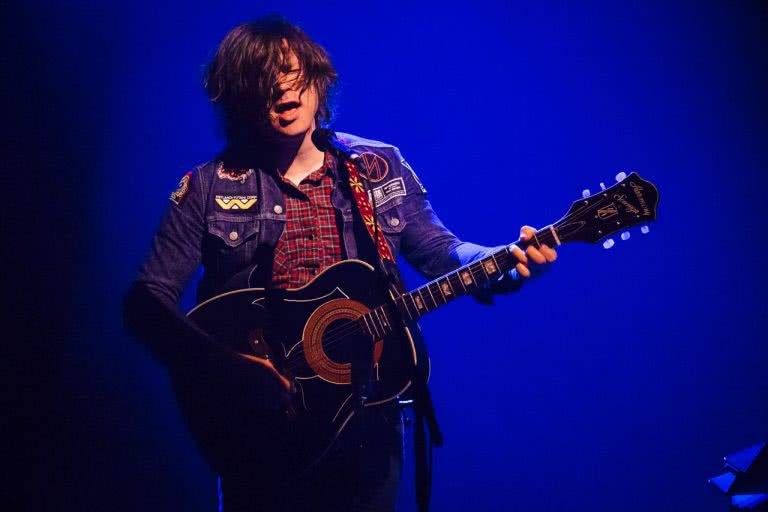Reviewed on Tuesday July 21 (photo by Daniel Boud)
At a 2002 gig, Ryan Adams famously paid one rowdy punter to leave after the spectator had requested he play Bryan Adams’ classic hit ‘Summer Of ’69’. More than a decade on, the former has mellowed, and his clever quips to members of tonight’s crowd hint at the maturation of one of contemporary music’s most compelling if often maligned songwriters.
Free of his Shining cohort and playing a solo acoustic gig in the regal surrounds of the cavernous Sydney Opera House may seem like an unorthodox choice for the enigmatic Adams, but almost from the first note, it’s a comfortable fit.
The understated stage with minimal lighting sets the tone for the night, accentuating a man, his two guitars, a harmonica, piano and a rich songbook of sheet music, through which Adams thumbs gingerly between tracks. The gig has the feeling of an intimate recital as the songwriter sidles up to the piano on the heartbreaking ‘Sylvia Plath’.
For the most part, the setlist reads like a roll call of Adams’ most popular tracks, spanning a prolific 14-record back catalogue that occasionally deviates along the way. As he mentions murmurs midway through, “If you all came to sit through two hours of sad songs, then you must be interested in me going deeper.”
The marauding ‘English Girls Approximately’ is a highlight. Adams’ interest in the poetry of Edgar Allan Poe is prevalent in many of tonight’s tracks, which are often dark tales of longing and fraying relationships – but importantly, are equally defiant, resolute and affirming. Adams is a troubadour who meets at the intersection of country, rock and folk – a performer who has clearly been shaped by his environment even if it hasn’t always been good to him.
Adams’ vocal range tonight is outstanding, and coupled with the easy rapport he has with his audience and the acoustics of the Opera House, there’s a lot to like, including an interesting cover of Foo Fighters’ ‘Times Like These’which feels as though Adams has applied a fresh coat of paint to the song.
The emphasis on a litany of slower songs doesn’t always maintain the momentum as the gig wears on, and at times you wonder if Adams can break free of these self-imposed constraints. However, this matters little on what is a rewarding night.

































